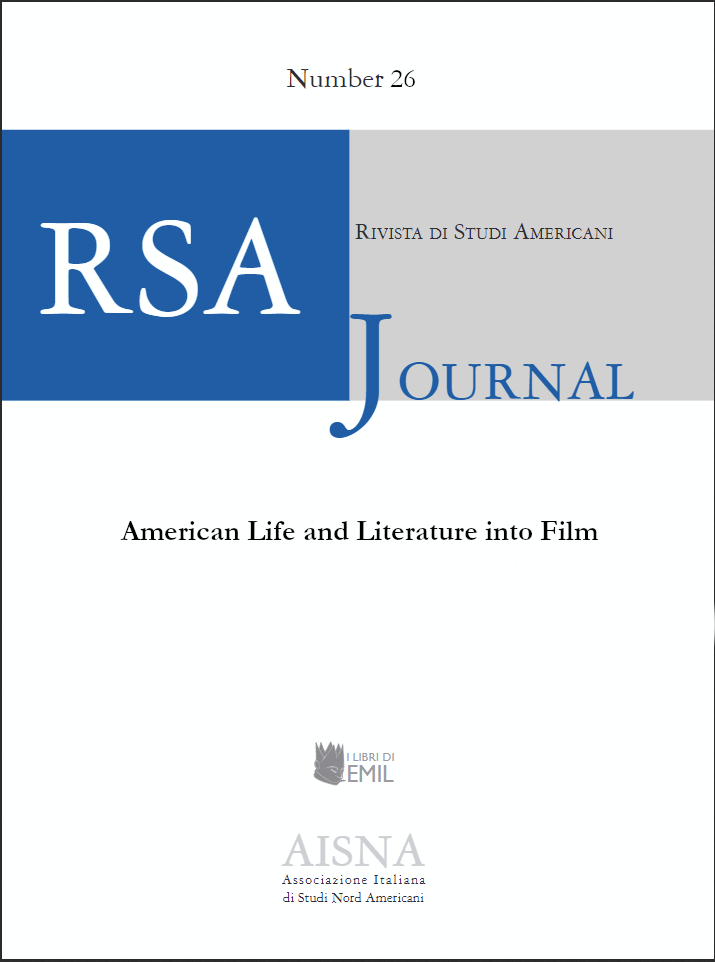“Authorizing for oneself a place in the world”
Coming of Age in Jhumpa Lahiri’s and Mira Nair’s “The Namesake”
DOI:
https://doi.org/10.13135/1592-4467/8646Keywords:
intergenerational conflict, Indian Americans, immigrant life, diasporic experienceAbstract
Jhumpa Lahiri’s 2003 novel The Namesake unfolds as the Bildungsroman of Gogol, the child of Bengali immigrant parents who is torn between his American upbringing and his Indian ancestry. Fraught with the most intimate aspects of the intergenerational conflict of immigrant lives in America, Lahiri’s narrative is reframed in a 2006 movie by the director Mira Nair. Nair’s The Namesake emerges as a collectivizing work, aiming at establishing a spatial and an emotional continuity between India and America. This article discusses how the narrative dissonances and the communicative voids that mold the protagonist’s angst in the novel are rendered by the power of the camera. By reinserting the Indian American second generation in a web of collective fruition, Mira Nair’s gaze illuminates the protagonist’s existential transformation, and at the same time grounds the South Asian diasporic experience onto an American, as well as a global realm of recognition.
Downloads
Published
Issue
Section
License
RSAJournal will apply a CC BY 4.0 license to all its contributions starting with issue 37 (2026). Previous issues are licensed under a CC BY-NC-ND licence.





